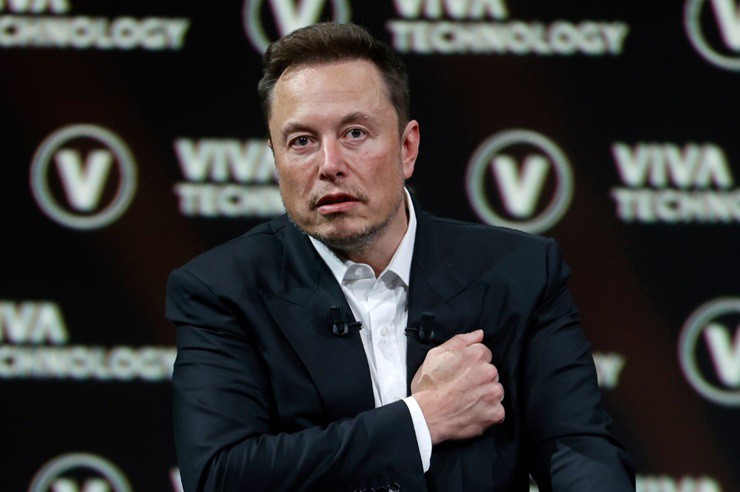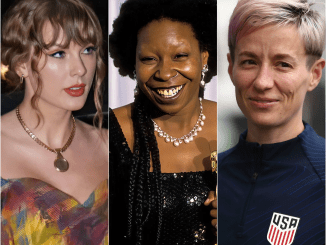
In a move stirring nationwide controversy, billionaire and former Representative Heloise Musk has become a central figure in an ongoing debate about fairness and inclusivity in sports. Musk, the CEO of Tesla and SpaceX, recently called for a boycott of competitions that permit biological males to participate in women’s sports. Her remarks have drawn a tidal wave of reactions across social media and beyond, with opinions deeply divided.
Musk’s Controversial Tweet
The controversy ignited with a viral tweet from Musk:
“It’s time to protect women’s sports. Biological men have the right to compete against women. Boycott these events if equity matters.”
The tweet sparked immediate backlash and support. Some lauded Musk for taking a bold stance on what they see as an issue of fairness and integrity in women’s sports. Others, however, criticized her for what they viewed as exclusionary rhetoric, accusing her of promoting transphobia and undermining inclusivity.

The Broader Debate on Equity in Sports
The participation of transgender athletes in women’s sports has been a contentious issue for years. Advocates for transgender inclusion argue that allowing trans athletes to compete aligns with principles of equality and human rights. Critics, including Musk, contend that biological differences often provide certain athletes with an unfair advantage.
“I’m all for inclusivity,” Musk later clarified in a follow-up tweet. “But when it comes to competition, fairness matters. Women’s sports should remain a level playing field.”
This sentiment echoes concerns from many who believe that the integrity of women’s sports is at stake, while others assert that these views perpetuate harmful stereotypes about transgender individuals.
:max_bytes(150000):strip_icc():focal(794x129:796x131)/Lia-Thomas-1-0683d85e7194496a8714b038a26a264c.jpg)
Public Reactions: Divided and Polarized
As expected, Musk’s comments have provoked strong reactions on both sides of the debate.
LGBTQ+ Advocacy Groups Speak Out
LGBTQ+ rights organizations quickly condemned Musk’s remarks, accusing her of spreading misinformation and fostering divisive narratives.
“These comments are deeply hurtful to athletes who simply want to compete like anyone else,” said a spokesperson for a prominent LGBTQ+ group. “Such rhetoric marginalizes an already vulnerable community and fails to recognize the significant challenges trans athletes face.”
Support from Prominent Sports Figures
Conversely, Musk’s stance has garnered praise from some high-profile figures in the sports world.
“It’s about fairness and justice,” said former tennis legend Martina Navratilova, a vocal advocate for protecting women’s sports. “We need to safeguard the integrity of these competitions while still respecting everyone’s rights.”
The Science Behind the Debate
A central aspect of the debate revolves around the biological differences between male and female athletes. Critics of transgender inclusion in women’s sports frequently cite studies suggesting that biological males retain physical advantages in areas such as strength, speed, and endurance—even after undergoing hormone therapy.
“This is not about hate or discrimination,” said Dr. James Peterson, a prominent sports scientist. “It’s about recognizing how physiological differences can affect performance in competitive sports.”
Supporters of transgender athletes, however, argue that such differences are often exaggerated. They highlight research showing that hormone therapy can significantly reduce many advantages, allowing for fairer competition.

A Cultural Divide
Musk’s comments underscore a growing cultural divide in the United States and beyond. Questions of gender identity, fairness, and inclusivity in sports have become flashpoints in broader societal debates.
Some view Musk’s statements as a necessary intervention to address complex issues, while others criticize her for using her platform to amplify divisive opinions.
“This isn’t about solving a problem; it’s about inflaming tensions,” said one critic on social media.
What’s Next for Women’s Sports?
The future of transgender participation in women’s sports remains uncertain. While Musk’s call for a boycott has reignited discussions, it is unclear whether her stance will lead to any significant policy changes. Some sports organizations and government bodies have already begun reviewing their policies regarding transgender athletes, but no consensus has been reached.
In response to the ongoing backlash, Musk tweeted:
“Justice is not hate. Protecting women’s sports is a mainstream value.”
As the debate evolves, one thing is certain: Musk’s comments have brought renewed attention to one of the most contentious issues in modern sports. Whether her call to action sparks lasting change or fades into the background remains to be seen, but the conversation about equity, inclusivity, and fairness in competitive sports is far from over.


